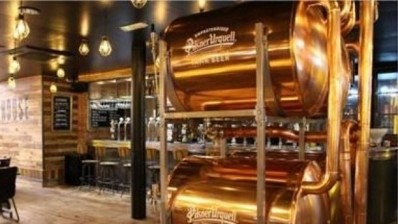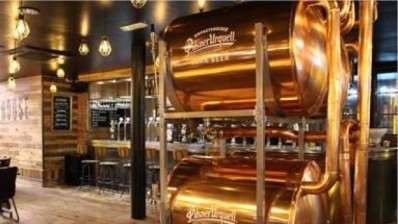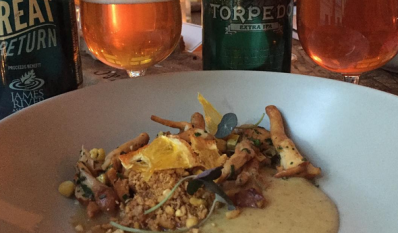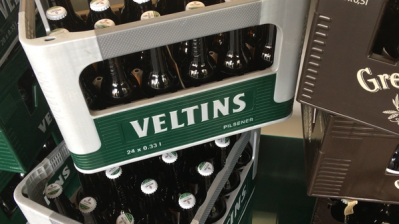Beer
Delivering the best way to pour a pint
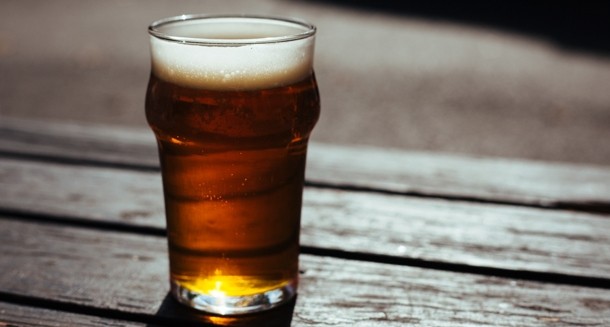
The Czech Republic consumes more beer than any other nation in the world. Its citizens love beer so much, in fact, that estimates suggest the country is top of the beer consumption world league table, a position held for 22 years based on the average amount of beer drunk per person.
A study by Japanese beverage company Kirin found that in 2014, Czechs drank an average of 142.6 litres of beer each, streets ahead of second-placed Seychelles with 114.6 and light years ahead of the UK in 27th place, with a measly 67.7.
But when you walk around the nation’s capital Prague, there are no pie-eyed trouble-making lager louts roaming the streets – that’s a job they save for the English stag dos.
Beer drinking is, evidently, ingrained in Czech culture, but it’s often a restrained style of sociable, relaxed drinking over a long period of time – and British pubs would do well to take note of a few key factors that facilitate this culture, according to Pilsner Urquell’s beer master, Robert Lobovsky.
Serious career
First off, bartending in the Czech Republic is a serious career. ‘Tapsters’ in the country are respected for the art of achieving a perfect pour of tank beer – which is strikingly different to a regular pint in the UK.
“In the UK you pour lager by opening the tap, letting the liquid pour out, and then top it up with foam,” Lobovsky explains.
“It oxidises when you’re pouring it, and it becomes more bitter than it already is as a result, it’s very carbonated and you’re left with an oxidised, collapsed foam.
“The way we pour beer is the absolute opposite – we pour out our foam, then we capture the liquid beneath.”
And this drastically enhances the beer’s ‘sessionability’, he explains. The Czech Mliko (milk) pour of tank Pilsner Urquell is made up of mostly foam, but despite this it has just 2.5g of CO2
per litre, compared with 4.5g in many British lagers.
“Mliko is more sessionable because most of the CO2 releases into the air on the front of your tongue. The tongue warms it up, and the quicker you warm it up the quicker you extract the CO2 from the liquid itself, and that’s why it never bloats you,” he explains.
“It’s quite clear to a bar owner that if I’m drinking something that’s not going to bloat me, I’m going to be able to drink a lot more of it.”
Pilsner Urquell is so interested in the effects of different beer pours that research found people are able to drink 33% more when things are done the Czech way.
“Dry foam is what the English hate. It’s that soapy, bubbled foam,” Lobovsky says. “And every two pints of an English pour is three pints of a Czech pour in terms of bloating. A pub owner should understand that by pouring the Czech way, you are increasing your sales by 33%,” he claims.
Yet, there is a rather large obstacle to overcome – price. In the Czech Republic, a beer for a couple of Euros can be seen as pricey; in the UK, pubs are often forced into charging a fiver for a pint because of the beer duty. This leaves consumers driven by value for money, and wanting every pint to be filled to the brim.
Price hurdles
The way Czech pubs package their beers helps them overcome any price hurdles, for example glasses and prices in the Czech Republic are designed to accommodate a healthy head of foam.
Lobovsky continues: “We say ‘this is the amount of liquid you’re paying for, and all I’m doing is filling the glass with foam to give a good head, and keep the freshness of the pint’.”
In the UK, the key to changing the perceptions of a perfect pour is in education – not only the general public, but bar staff.
In the Czech Republic, those pulling the pints – the tapsters – are respected equally by the brewer and their managers, which is shown in the amount of pay they take home.
“The tapster is a god in the pub. Being a tapster is one of the most important jobs in the Czech Republic. They are dedicated to the art of pouring. It’s like being a barista or sommelier,” Lobovsky explains.
“Pilsner Urquell should always be poured the Czech way by a trained tapster.
The foam is a vital part of the experience, it protects the beer from air for longer and adds a malty sweetness.
“The brewmaster brews the beer but the tapster makes the beer, and makes it a good or bad beer. If it’s poured the right way, it improves that sessionability.”
And the respect for the tapsters goes all the way up to Pilner Urquell’s top dog, the brewmaster himself, Vaclav Berka.
“The bartender makes the beer and has huge power in his hands,” he says.
“Our lives are in their hands. Training is very important, and trained staff are appreciated, and they pour excellent beer.”
Czech expertise
The importance of training is why Pilsner has launched its Tapster Training Programme, which seeks to spread the Czech expertise to the UK.
The programme is an intensive five-day course at the brewery in Plzen. Select bartenders from Pilsner Urquell tank bar outlets across the UK learn the science and art of pouring beer.
They are even sent on an initiation into the world of Czech bartending, working a shift in a local tank beer bar. After passing written and practical tests, they’re sent back to the UK to spread their knowledge among their own teams.
One of a group of trainees flown over from London Draft House sites this summer was Ruth Holmes.
She says: “If we give the traditional Czech pour to people at the Draft House, a lot of people maybe wouldn’t think they would like it.
“But if you get a group who are sceptical about it, we can now ask customers to try both and compare them, and say ‘now tell me you don’t taste the improvement’. They are always going to be pleasantly surprised.”
As it looks to step up its focus and expansion of tank beer in UK pubs, Pilsner Urquell is aiming to have a trained tapster in all of the brewery’s tank bars across the UK.
